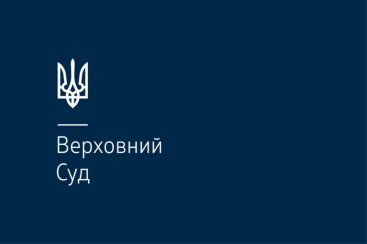Contact center of the Ukrainian Judiciary 044 207-35-46

The courts of first and appeal instances stated that under the disposition of part 1 of Article 438 of the Criminal Code of Ukraine, the legislator has defined the following acts as criminal offences: 1) ill-treatment of prisoners of war or civilians; 2) expulsion of civilians for forced labour; 3) looting of national property in the occupied territory; 4) use of means of warfare prohibited by international law; 5) other violations of the laws and customs of war provided for by international treaties ratified by the Verkhovna Rada of Ukraine; 6) ordering such actions.
In particular, Article 51 of the Geneva Convention relative to the Protection of Civilian Persons in Time of War of 12 August 1949, ratified by the Verkhovna Rada of Ukraine, provides that the occupying power shall not compel protected persons to serve in its armed forces. Any pressure, including conscription, or propaganda in favour of voluntary enlistment is prohibited.
The Criminal Cassation Court of the Supreme Court agreed with the positions of the courts of previous instances in the course of consideration of criminal proceedings on violation of the laws and customs of war (part 1 of Article 438 of the Criminal Code of Ukraine), which are provided for by international treaties ratified by the Verkhovna Rada of Ukraine, by forcing protected persons to serve in the armed forces of the occupying country - the russian federation.
The Criminal Cassation Court of the Supreme Court stated that the following can be seen from the challenged court decisions: the courts found that the defendant, holding the positions of "senior assistant military commissar" and "military commissar", was guided by the provisions of the federal law of the russian federation "On military duty and military service".
In addition, the courts of previous instances found that the summons signed by the defendant stated that he was obliged to appear at the military commissariat for a meeting of the draft board, which undoubtedly indicates that the person to whom the summons was addressed had no choice, as failure to appear at the military commissariat would be regarded as evading military service. In such cases, the accused personally initiated the coercive measures provided for by the legislation of the occupying power, knowing full well that these persons were protected by the Geneva Convention.
Moreover, the court of appeal noted that the defendant not only signed summonses to summon civilians to meetings of conscription commissions, but also participated in these meetings, where the issues of searching for and notifying persons allegedly subject to conscription into the armed forces of the russian federation were discussed. In addition, the court noted that the defendant had personally appealed to the head of the municipal administration, who had been appointed by the occupation authorities to assist in the search for persons evading conscription and to serve them with summonses.
In view of the above, the courts reached a reasonable conclusion that the accused, holding the positions of "senior assistant military commissar" and "military commissar", implemented the state policy of the russian federation in the military sphere on the territory of the Autonomous Republic of Crimea, and therefore the Criminal Cassation Court of the Supreme Court has no doubt that the courts correctly qualified the actions of the accused under part 1 of Article 438 of the Criminal Code of Ukraine.
The Resolution of the Criminal Cassation Court of the Supreme Court of 28 February 2024 in case no. 753/14148/21 (proceedings no. 51-6134км23).